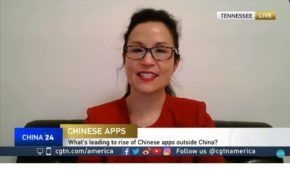
While the US has been busy floating the media with an upcoming deal on TikTok, China has been rather quiet, notes adjunct professor at NYU School of Law Winston Ma, author of The Digital War: How China’s Tech Power Shapes the Future of AI, Blockchain and Cyberspace on CNBC.
CNBC:
The lack of details in the Chinese side’s statement “suggests that China is taking time to negotiate when U.S. is keen to have deals,” said Winston Ma, adjunct professor at NYU School of Law, pointing out that Beijing “said nothing about [an] APEC meeting.”
And then there’s China’s vague commitments to a tech licensing deal to keep TikTok alive in the U.S. — what Beijing calls a “solution that complies with China’s laws and regulations.”
That contrasts with the constant flow of details from the U.S., now covering everything from investors to board seats. A Politico report, citing an unnamed senior White House official, even claimed that the Trump administration is “100% confident” of a deal forcing Beijing-based ByteDance to spin off TikTok’s U.S. operations.
Trump, however, may have preempted China’s coolness, saying in a Truth Social post Friday that he “appreciate[s] the TikTok approval” after his call with Xi, even as Beijing kept its language vague.
Winston Ma is a speaker at the China Speakers Bureau. Do you need him at your meeting or conference? Do get in touch or fill in our speakers’ request form.
Are you looking for more political experts at the China Speakers Bureau? Do check out this list.




